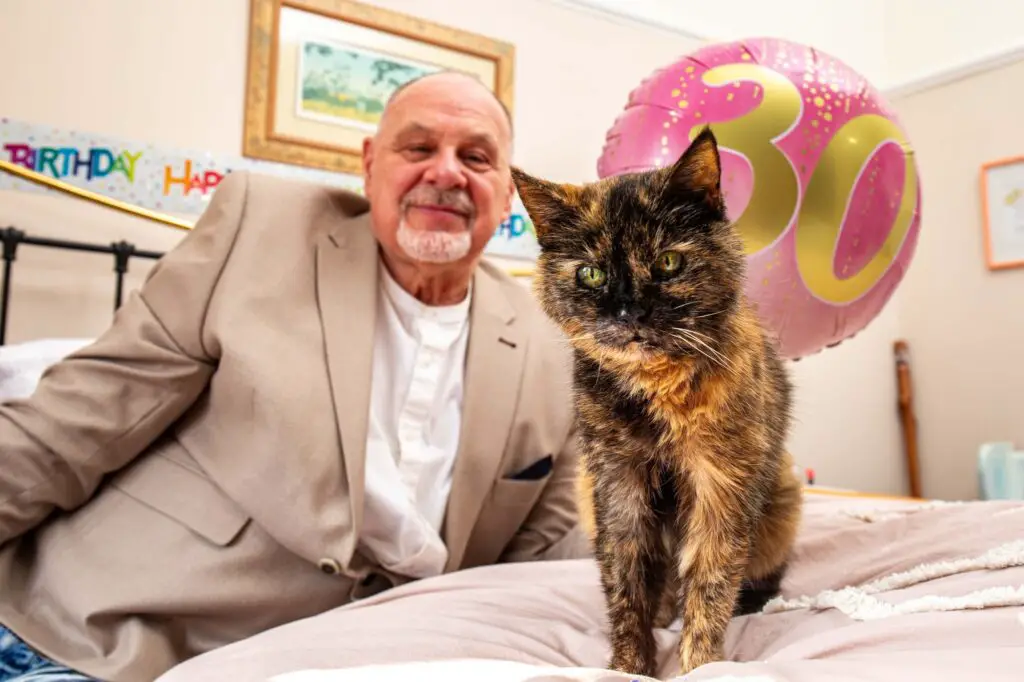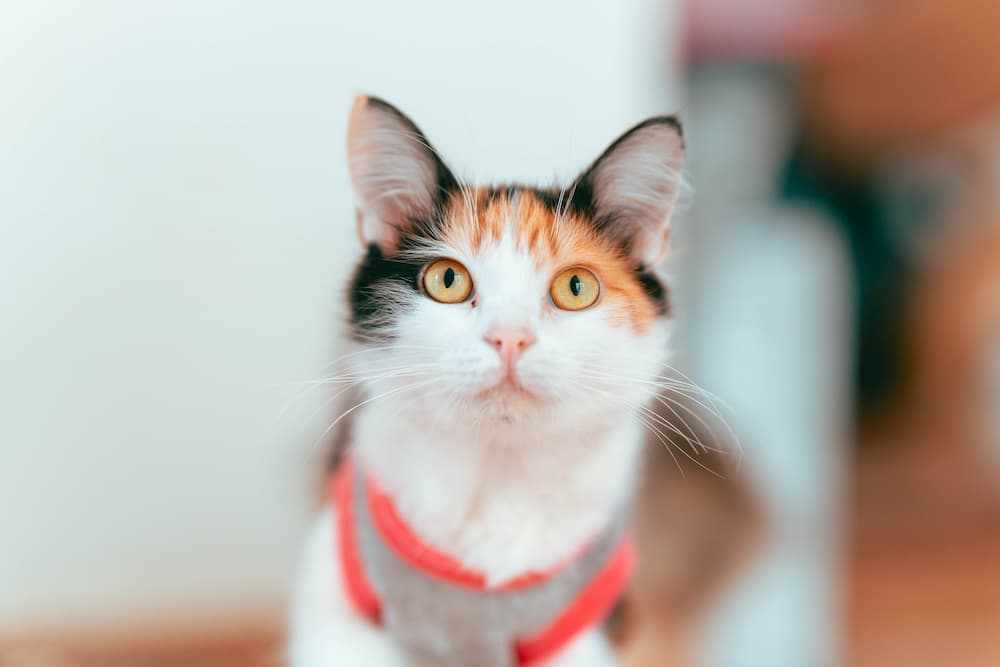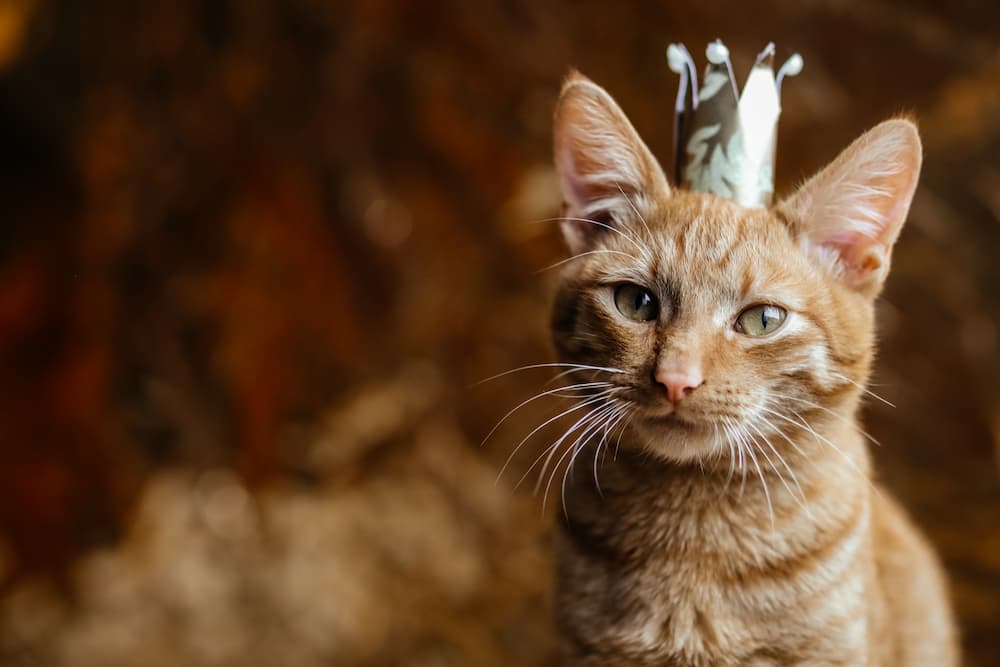
As a loving cat parent, your first priority is keeping your kitty healthy and happy. Of course, that includes lots of cuddles and snuggles, fun toys, and spoiling your little furball rotten with some tasty treats. But it also means protecting your cat from disease and illness, and the best way to do that is to stay up to date on his vaccinations.
Cat vaccinations are essential to your kitty’s health plan, but it’s natural to have questions about where to start and which ones your cat really needs. Here’s a complete breakdown of cat vaccinations, from when kittens need their first shots to why each vaccine is important, and so much more.
Why Vaccines Are Important for Your Kitty
Vaccinations are the best way to prevent many life-threatening illnesses from infecting your kitty. Staying up to date on your cat’s vaccines will help to ensure that your kitty has a long and healthy life.
Vaccinations work by preparing your cat’s immune system to fight off specific illnesses he may become exposed to. They introduce antigens into your cat’s body that signal it to produce antibodies needed to fight off these illnesses. Then, if your cat is ever exposed to that illness, his immune system can recognize them and fight them off.
They’re your cat’s best chance at overcoming several very serious diseases. It also protects other animals your cat spends time with, such as other pets in your home. And, since some of these infections can pass from cats to humans, vaccinating your cat protects you, as well.
In addition to the significant health benefits for your entire household, some vaccinations are required by law. Many states require kittens to receive their first rabies vaccine by the time they are four months old and then regular boosters throughout their life. Be sure to keep your vaccination records in a safe place, in case you ever need to verify his vaccination status.

Core vs Non-Core Cat Vaccines
Different vaccinations are required for different diseases and they are given as single or combination shots. According to sources at the Bond Vet clinic in Chelsea, NYC, vaccine protocols can vary depending on your cat’s health history, age, lifestyle, where you live, and various other factors, so it’s always best to speak directly to your veterinarian.
Core vaccinations for cats are the ones that are considered essential for every cat. These include the rabies vaccine, rhinotracheitis, and a three in one FVRCP vaccination that includes protection against certain respiratory infections that can be very dangerous for your cat.
Non-core vaccines may also be recommended by your vet, based on a variety of factors, including diseases that are prevalent in your area. These include the feline leukemia vaccine, Bordetella, feline immunodeficiency virus, and/or the Chlamydophila vaccine.
Recommended Vaccine Protocols for Kittens and Adult Cats
Ideally, kittens should have their first vaccines at six weeks old. But, don’t worry! If your kitty wasn’t part of your life when he was a young kitten, your vet can recommend a vaccine schedule to get him caught up safely.
Once your cat has received all of his kitten shots, he should have booster shots of those vaccines every year. A three-year rabies vaccine booster is also available, depending on your vet’s preferences.
As mentioned in the previous section, there is no one-size-fits-all vaccine protocol that’s perfect for every cat, but these are the general guidelines most veterinarians follow.
Kitten Vaccination Schedule
- 6 weeks: FVRCP
- 11 weeks: FVRCP booster + FeLV (feline leukemia)
- 15 weeks: FVRCP booster + FeLV booster + Rabies
Adult Cat Vaccination Schedule
- Annually: FVRCP Booster + FeLV booster
- Every 1 to 3 years: Rabies booster
The Average Cost of Cat Vaccines
The cost of vaccines can be a major concern for many cat parents, but the good news is, they’re actually quite affordable. Although the price of each vaccine can vary a bit by location, individual vaccines generally cost around $10-$35, when administered in conjunction with your cat’s annual wellness exam.
Even more importantly, keeping up with your cat’s vaccines and annual exams can help to prevent serious illnesses in the future, which can be extremely expensive to treat.
The Potential Side Effects of Cat Vaccines
Most cats show no ill effects after receiving their vaccinations. However, some kittens and cats may experience mild side effects after receiving vaccinations, such as a low fever or soreness at the injection site. Allergic reactions are also possible. In the event your cat does experience a reaction, it will likely be minor and resolve quickly.
However, it’s always a good idea to watch for the following signs of a negative vaccine reaction and alert your vet right away:
- Fever
- Loss of appetite
- Diarrhea or vomiting
- Lameness
- Lethargy
- Redness or swelling near the injection site
- Hives
The simple fact is the rewards of vaccinating your cat far outweigh any potential side effects. But, just like with any medical procedure, there’s a risk of negative reaction. Keep in mind that the majority of vaccine reactions are extremely mild when compared to the disease they’re designed to prevent.
Vaccinations for Indoor Cats
You may be wondering if your indoor cat still needs vaccinations, even though he never leaves the house. The answer is, yes, absolutely! Vaccines are still essential for protecting your indoor cat’s health, but he may not need as many as a cat who spends time outdoors.
Your indoor cat should still be kept up on his rabies vaccine. Not only is it required by law in most areas, but you never know when your cat might slip out the door and potentially be exposed to an animal with rabies. It’s also important to note that bats are a major carrier of rabies, and it’s not uncommon for them to get in the house where cats can potentially kill or play with them.
Indoor cats should also receive the FVRCP combo vaccine for Feline Viral Rhinotracheitis, Calicivirus, and Panleukopenia every 1 to 3 years. This vaccine protects against dangerous respiratory infections, including the feline herpes virus and the feline distemper virus. Not only are these infections highly contagious among cats, but they can also come into the home on a cat owner’s clothing.
Most veterinarians feel that the FeLV, or feline leukemia, vaccine is not necessary for indoor cats who never go outside unsupervised. However, your vet may still recommend it for your indoor cat if he spends time at grooming or boarding facilities.
Final Thoughts for Cat Parents
Keeping your cat up to date on his vaccines is essential for his health and longevity. Along with the other essentials of preventive health care, including annual wellness exams, dental care, and parasite prevention, vaccines will help to ensure that you and your cat enjoy a long, happy life together.
About the author
Nicole McCray is a die-hard animal lover who has worked in pet care for years. She is a former vet technician, a dog mom to her two rescue pups, and she grew up living and working at her family’s pet boarding facility. She loves using her writing talents to share the insight she’s learned throughout her career in the hopes that her knowledge can help other pet parents out there!







